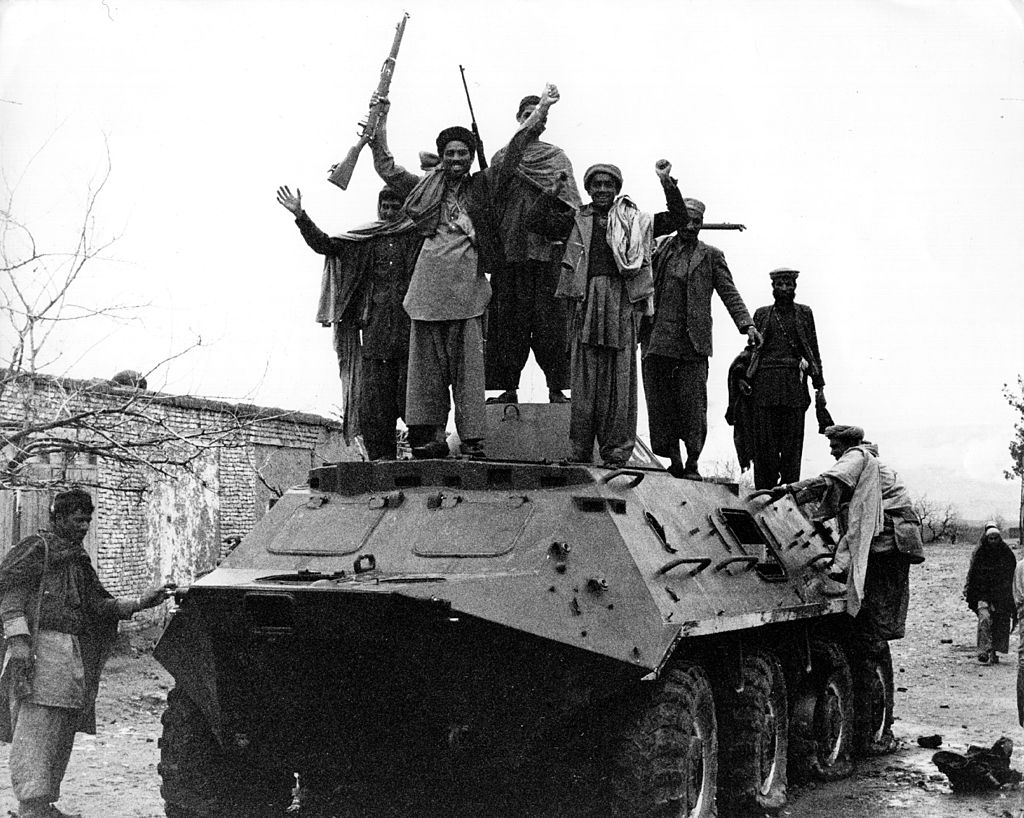Russia is already tentatively cozying up to the Taliban after Afghan sweep


A free daily email with the biggest news stories of the day – and the best features from TheWeek.com
You are now subscribed
Your newsletter sign-up was successful
The U.S. and other Western nations evacuated their embassies in Kabul on Sunday as the Taliban took control of the Afghan capital, but Russia and China stayed put — mostly. "We have a relatively large embassy in Afghanistan, it's about 100 people altogether," Zamir Kabulov, Russia's special presidential representative for Afghanistan, told Echo of Moscow radio Monday. "Some of our employees will be sent on vacation or evacuated in some other way so as not to create too much of a presence." He said the Taliban is now protecting Russia's Kabul embassy.
Russia's ambassador is scheduled to meet with Taliban leaders on Tuesday. Kabulov said Moscow with decide on whether to recognize the Taliban-led government based on it's "conduct" and "how responsibly they govern the country in the near future." But "I have long decided that the Taliban is much more able to reach agreements than the puppet government in Kabul," he told Russian state television Monday.
"Russia had a humiliating withdrawal from Afghanistan, so while taking some satisfaction in the U.S. failure, it's not gloating," exactly, NPR News reports. "Instability in the region is a danger to Russia's Asian neighbors," and thus to Moscow. "Russia has lots to lose," said Moscow-based military analyst Pavel Felgenhauer with the independent Novaya Gazeta weekly. "America can walk away from Afghanistan and forget it as a bad dream. They have that privilege. Russia cannot."
The Week
Escape your echo chamber. Get the facts behind the news, plus analysis from multiple perspectives.

Sign up for The Week's Free Newsletters
From our morning news briefing to a weekly Good News Newsletter, get the best of The Week delivered directly to your inbox.
From our morning news briefing to a weekly Good News Newsletter, get the best of The Week delivered directly to your inbox.
Beijing is taking a cautious approach, saying it views the Taliban as a transitional government, while Pakistan — the Taliban's biggest backer last time it held power, from 1996 to 2001 — appeared to celebrate the militant group's takeover. "They have broken the shackles of slavery in Afghanistan," Prime Minister Imran Khan said Monday.
Russia and China are concerned the Taliban's victory could encourage Islamist uprisings in their own spheres of influence, but both countries "already are moving to build ties with the Taliban and have hosted Taliban officials even before the U.S. military completed its troop withdrawal," The Wall Street Journal reports. The Biden's administration's "repeated threats to turn Afghanistan into a 'pariah state' if the Taliban commits human rights abuses could be undermined if Beijing and Moscow don't cooperate and if a Taliban-led government strengthens ties with Pakistan and Iran."
A free daily email with the biggest news stories of the day – and the best features from TheWeek.com
Peter has worked as a news and culture writer and editor at The Week since the site's launch in 2008. He covers politics, world affairs, religion and cultural currents. His journalism career began as a copy editor at a financial newswire and has included editorial positions at The New York Times Magazine, Facts on File, and Oregon State University.
-
 Key Bangladesh election returns old guard to power
Key Bangladesh election returns old guard to powerSpeed Read The Bangladesh Nationalist Party claimed a decisive victory
-
 Judge blocks Hegseth from punishing Kelly over video
Judge blocks Hegseth from punishing Kelly over videoSpeed Read Defense Secretary Pete Hegseth pushed for the senator to be demoted over a video in which he reminds military officials they should refuse illegal orders
-
 Trump’s EPA kills legal basis for federal climate policy
Trump’s EPA kills legal basis for federal climate policySpeed Read The government’s authority to regulate several planet-warming pollutants has been repealed
-
 What is ‘Arctic Sentry’ and will it deter Russia and China?
What is ‘Arctic Sentry’ and will it deter Russia and China?Today’s Big Question Nato considers joint operation and intelligence sharing in Arctic region, in face of Trump’s threats to seize Greenland for ‘protection’
-
 What would a UK deployment to Ukraine look like?
What would a UK deployment to Ukraine look like?Today's Big Question Security agreement commits British and French forces in event of ceasefire
-
 Did Trump just end the US-Europe alliance?
Did Trump just end the US-Europe alliance?Today's Big Question New US national security policy drops ‘grenade’ on Europe and should serve as ‘the mother of all wake-up calls’
-
 Is conscription the answer to Europe’s security woes?
Is conscription the answer to Europe’s security woes?Today's Big Question How best to boost troop numbers to deal with Russian threat is ‘prompting fierce and soul-searching debates’
-
 Trump peace deal: an offer Zelenskyy can’t refuse?
Trump peace deal: an offer Zelenskyy can’t refuse?Today’s Big Question ‘Unpalatable’ US plan may strengthen embattled Ukrainian president at home
-
 Vladimir Putin’s ‘nuclear tsunami’ missile
Vladimir Putin’s ‘nuclear tsunami’ missileThe Explainer Russian president has boasted that there is no way to intercept the new weapon
-
 The Baltic ‘bog belt’ plan to protect Europe from Russia
The Baltic ‘bog belt’ plan to protect Europe from RussiaUnder the Radar Reviving lost wetland on Nato’s eastern flank would fuse ‘two European priorities that increasingly compete for attention and funding: defence and climate’
-
 How should Nato respond to Putin’s incursions?
How should Nato respond to Putin’s incursions?Today’s big question Russia has breached Nato airspace regularly this month, and nations are primed to respond
